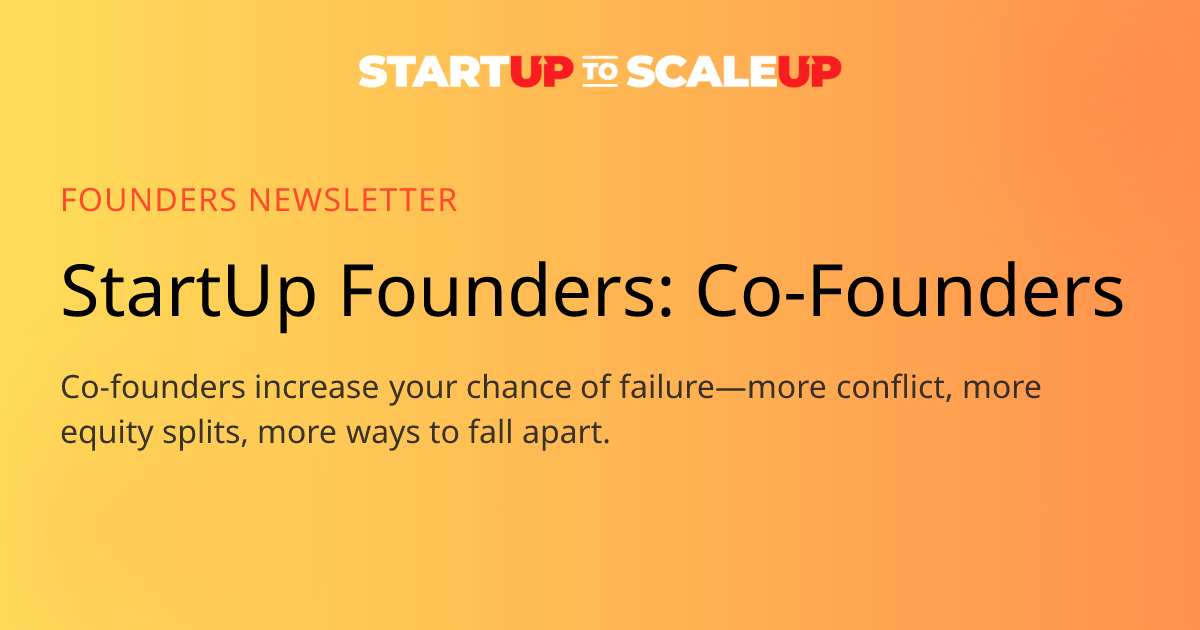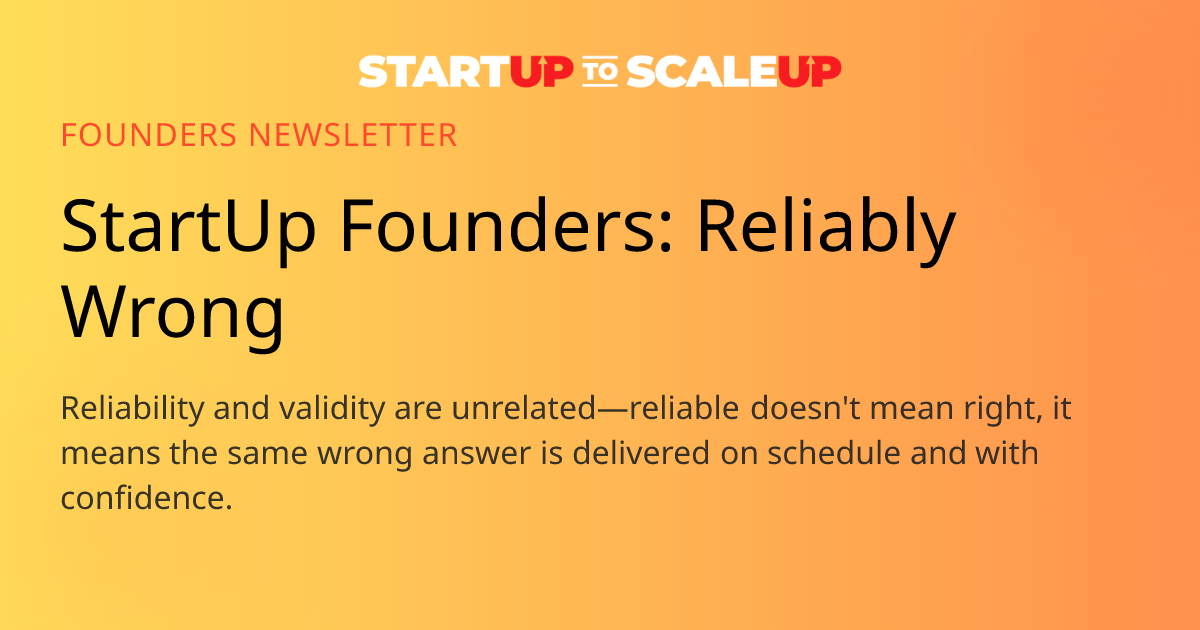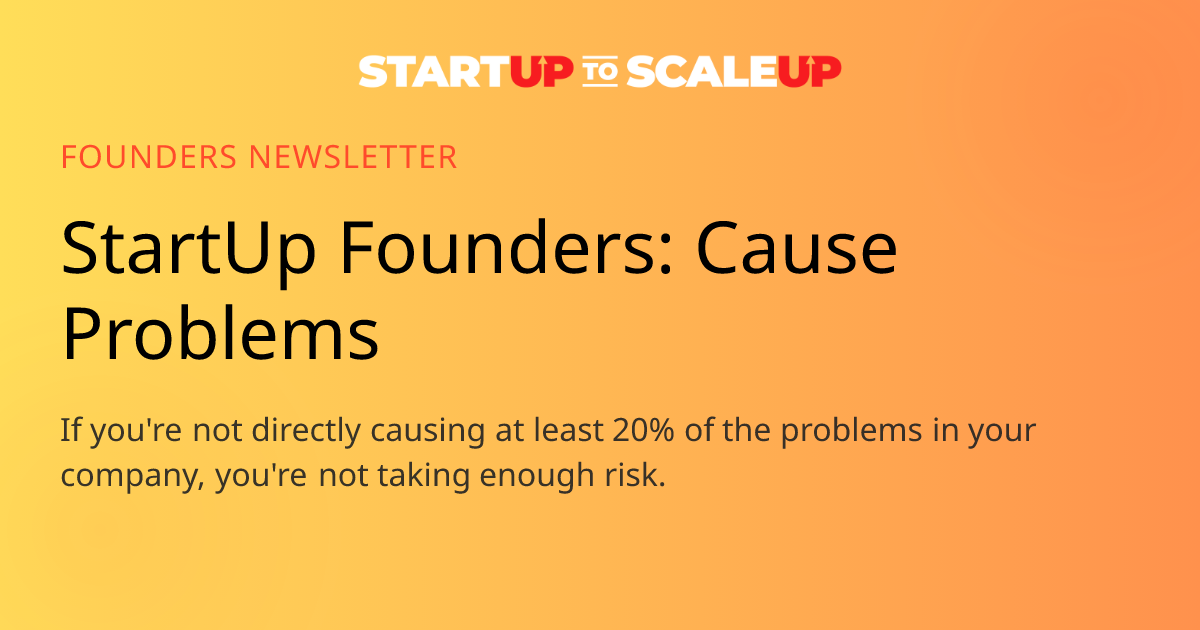You Are the Moat: How Early-Stage Founders Build Defensible Advantages
Published June 28, 2025
Core Takeaway
TLDR
- In the early stage, your product isn’t the moat—you are. Moats are built, not born.
- Founder behavior (speed, insight, edge) is the only defensibility you start with.
- Use temporary moats (network, access, distribution) to buy time to build real product-led defensibility.
Newsletter
Hey Founder,
What stops someone from stealing your idea? Not much.
In most cases, I can find, hire, or outsource to a team that gets to basic parity with your tech. I’m not talking about stealing your vision, that’s what makes you unique. I’m talking about stealing your traction. Your customers. Your edge.
That’s what a "moat" protects. Your competitive advantage, your defensible edge. And if you don’t have one yet, be very clear what’s holding your position... likely by a thread.
In the early days, you don’t have product defensibility. You don’t have deep dependencies. You don’t have a partner ecosystem or expensive switching costs. You don't have the lock in, the buy in, the integrations. F. You don't really have anything.
What you do have… is you. You are the moat.
This isn't founder motivation; It's founder responsibility. It's past hustle and into defending yourself against structural threats. Think Porter's Five Forces.
Someone is always coming for your customer, your margin, your future, whether they know you exist or not. That grind of compounding your moat is just defense against threats you can't even see.
We love to talk about the product as the edge but at the beginning it’s rarely the product, not because we don’t want it to be, but because it just can’t be.
It’s you. Your unique insight. Your unfair distribution. Your speed of execution. Your willingness to do something others won’t. Your unreasonable obsession with the customer. Your ability to stay in, when logic says stop.
That’s what’s protecting you early on, which is why founder mode, consistently finding the edge, the arbitrage of value, the tiny tiny crack you can exploit is so critical.
Don't confuse this with the long game, if you survivability, you have to become core. The closer to core you are, the harder it is to be rid of you. The move from nice-to-have to must-have is directly tied with proximity to core. But that’s the endgame.
On Day Zero, when all you have is a moderately decent website, a barely working product, and a few believers, of course there is no moat! The protection, the moat, is anything that would take a competitor real time, money, or pain to recreate or a gap they have not exploited, or a move they didn’t see coming. Thats you.
Some founders get to start with a mini-moat:
- Power: If you’ve built reputation, status, or access that lets you do things others can’t (or faster than they can), that’s a moat. Power unlocks velocity. Power unlocks doors.
- Network: If your existing network gives you distribution that others can’t reach, that’s a moat. Especially if your distribution has inherent trust already. Personal brand. Previous wins. The right connects.
- Leverage on someone else’s moat: A killer partner. A top-tier incubator. A well-connected investor. Borrowed trust is still trust and it buys you time. (and no secret I think founders underestimate, underplay, and wait too long to develop their partner ecosystem)
But these are temporary moats, head starts while you try and build the real thing… Product. Trust. Usage. Dependency.
Use your early moat, whatever unfair advantage you’ve got, to buy time to build a better one. Compound moating, from a puddle to an actual moat!
You cannot skip straight to CORE. You have no choice but to wedge in with something clever, dangerous, beautiful, surprising, outrageous.
A singular feature that is just a 10x'er. A customer willing to fight to make your product brilliant. A distribution hack no one saw coming. A champion others couldn’t get to. Always doing something to get and keep attention. Speed. Or empathy. Or edge.
Then you deepen the dependency. You build the integrations. You expand usage. You create champions. You become CORE.
That’s the transition from YOU to PRODUCT.
But until then, it’s not that product isn’t your job, it is, it’s that product can’t be your moat. Not yet.
So your startup isn’t protected by code. It’s protected by behavior.
- The impossible cold email. Again.
- The impossible client. Again.
- The impossible 10x feature. Again.
- Obsessing over the user. Finding that moment.
- Shipping, iterating, apologizing, re-shipping, fast.
- Fighting for insights no one else bothered to look for.
- Taking big f’n swings when they make sense, and sometimes, when they don’t.
Your edge is the collection of things only you would do.
One more time. I should have opened with this. Your edge is the collection of things only you would do.
And the people trying to copy you? They won’t. They can’t. They don’t want it as bad as you do. They can’t match your motion. They’re following a playbook you are creating in real time.
No one can leapfrog you if they don’t know your next move. Yes, we know you’re going to integrate with Slack, enable webhooks, add analytics, AI signals… but I can’t catch up if you’re always thinking bigger, working on something my brain didn’t even have the capability to process. Predictability is vulnerability. Surprise is defense.
So. Yes. Product becomes the moat.
Yes. Becoming CORE is the target.
But don’t (you can’t) skip the puddle stage.
Because before the product is irreplaceable, you have to be.
And if you’re not doing something unreasonable, clever, precise, or obsessive, then what are you doing that makes this yours? What are you doing to truly protect your business.
Moats aren’t magic. They’re just earned momentum.
Be one big thing away from the next. Be surprising. Be leveraging. Use speed, empathy, and sheer genius. Be crystal clear what’s protecting your edge. Your product will not magically do it for you.
That’s the work.
Frequently Asked Questions
More Newsletters
Continue Your Founder Journey
Explore all the resources available to help you build and scale your startup
Startup Frameworks Library
Subscribe to the Newsletter
Join 140,000+ founders getting exclusive strategies, frameworks, and founder stories every Sunday.
Get instant access to the 50-Step Founder Playbook downloaded over 1M times
Presented by




